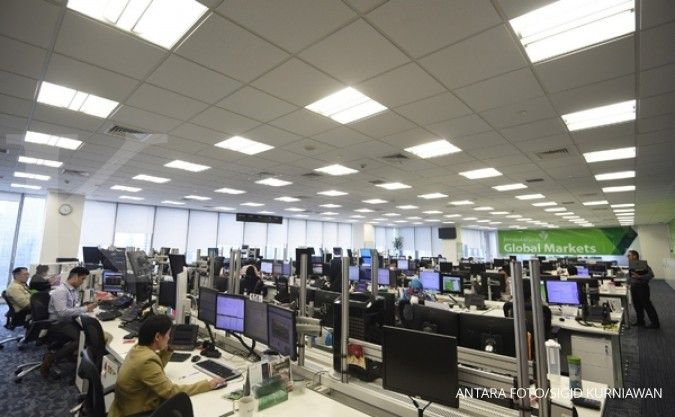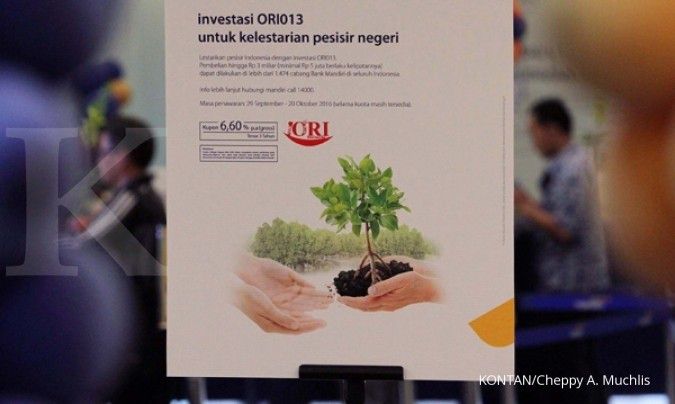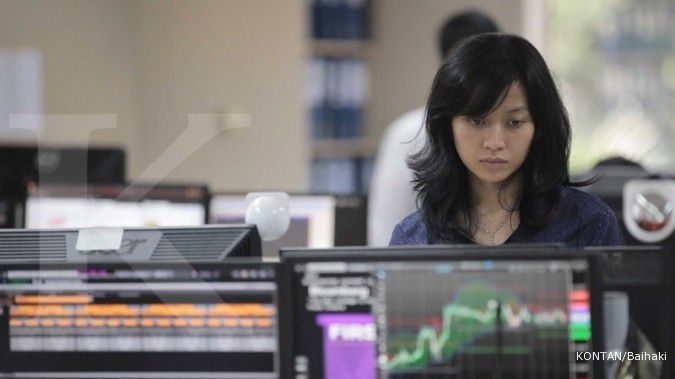JAKARTA.The domestic obligation market will be facing internal and external challenges. However, the bonds remain prospective, thanks to the increase in demands from non-banking financial industry (IKNB), as well as the tax amnesty funds inflow.
The performance of bonds during 2016 has been satisfying. According to the data of Indonesia Bond Pricing Agency (IBPA), as of 23 December 2016, Indonesia Composite Bond Index (ICBI) grew by 13,86% to the level of 208.67 on year to date (ytd) basis.
During that period, the government and corporate bonds booked the total returns of 14.07% and 12.59%, respectively.
The bonds investment also will remain prospective in 2017. The government is planning to release a worth of Rp 596.8 trillion gross government securities (SBN) in 2017. The target is slightly lower than this year’s target of Rp 611.40 trillion.
The issuance of corporate bonds is likely to book record in 2017. As information, according to data from Indonesian Central Securities Depository (KSEI) as per 20 December, the issuance of corporate bonds has reached the value of Rp 122. 43 trillion, the highest record ever.
The Indonesian Securities Rating Agency (PEFINDO) predicts that the corporate bonds issuance in 2017 will reach the value of Rp 119.6 trillion. The corporations will release new bonds to refinance the worth of Rp 79 trillion corporate bonds, which will mature in an immediate time.
Despite of the massive bonds issuance, President Director of PEFINDO Salyadi Saputra is optimistic that the market will be able to absorb the massive supplies. The demands will be driven by the tax amnesty funds inflow, as well as the minimum obligation of non-banking financial industry investment on government bonds.
The analyst at Pasar Dana Beben Feri Wibowo estimates that the demands on bonds will remain stable in 2017, thanks to the coupon rate that is more attractive than other instruments, such as deposits.
According to Beben, the domestic fundamental conditions will improve. The tax amnesty program, which will be run until March 2017 will be the positive sentiment for the economic fundamentals. This program will drive the repatriation funds inflow to Indonesia.
The tax amnesty will at least support the government in controlling rupiah exchange rate. Rupiah even has chance to appreciate after being corrected in a significant manner.
The demands on bonds will also be driven by the regulation of Financial Service Authority (FSA) on the investment of INKB in government securities (SBN). Let alone, the FSA has increased the minimum investment of INKB in SBN from 10%-20% in this year to 20%-30% in 2017.
Nevertheless, some external factors will remain overshadowing the domestic bonds market. According to Beben, The Fed’s plan to increase the funds rate in three times in 2017 will suppress rupiah exchange. The rupiah’s correction may trigger foreign investors’ sell-off, which is potentially to affect to the bond’s price.
The US policies under the newly elected President Donald Trump remain unclear. “Under the uncertainties, BI (the Central Bank) may be increasing the benchmark rate,” Beben said.
Meanwhile, the inflation rate is predicted to increase in the next year. The inflation rate in August 2016 was 2.79%, while in September, October, and November were 3.07%, 3.31%, and 3.58%.
Fixed Income Analyst at MNC Securities I Made Adi Saputra also estimates that the increase in interest rate will overshadow the bond market. He predicts that The Fed’s plan to increase the funds’ rate in three times will be realized. The foreigners’ ownership of 80% bonds will shake the bond market.
Meanwhile, the increase in global crude oil price following OPEC’s decision to cut the productions may drive the government to rise the oil price. This may increase the bonds’ yields.
Selecting short tenor
Beben suggests investors, who are planning to collect the bonds in 2017, to consider the economic fundamentals conditions, as well as the coupon rate that will affect to the yields, maturity time, as well as the amount of transaction in market.
Fixed Income Fund Manager at Ashmore Asset Management Anil Kumar suggests investors to hold short term bonds in 2017, while monitoring the market conditions. “If the prices are really increasing, the investors just can shift to the long term bonds,” Anil said.
Analyst at Indonesia Bond Pricing Agency (IBPA) Nicodimus Anggi Kristiantoro predicts that the bonds of banking sector and financial institutions will still be dominating market and attractive. He estimates that the two sectors have the lowest default risks.
Anggi added that 38% of banking sector companies and 21% of financial sector companies secure the rating single of A and above.
Beben predicts that the yields of government bonds with ten years tenor in 2017 will be ranging at 7.4%-8.6%. Meanwhile, the coupons of bonds with the ranking of idAAA will be ranging at 7%-8%.
(Muhammad Farid/Translator)
/2016/12/06/897756757p.jpg)












